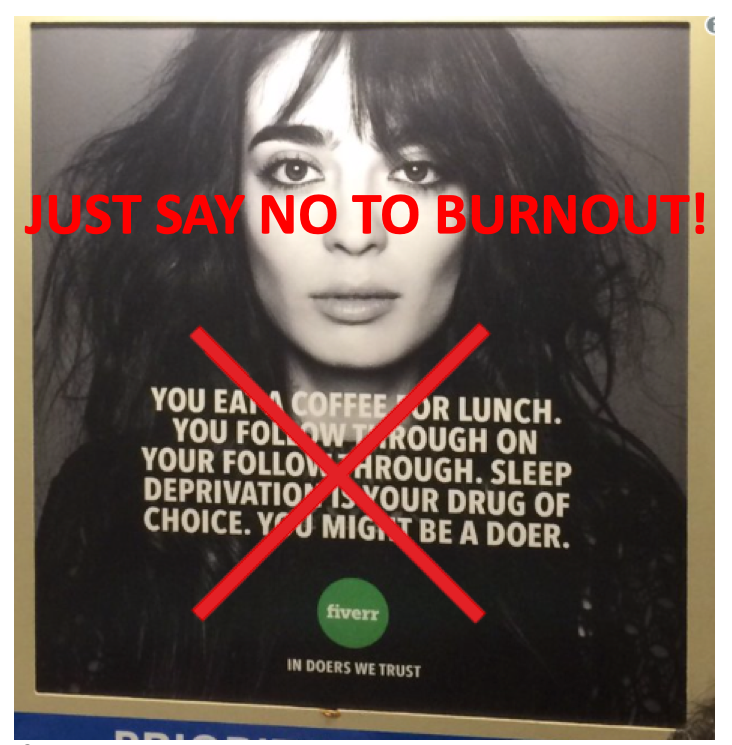This week the World Health Organization officially recognized burnout as a workplace affliction. Hooray!!
The Definition of Burnout from the World Health Organization:
Burnout is a syndrome conceptualized as resulting from chronic workplace stress that has not been successfully managed. It is characterized by three dimensions: 1) feelings of energy depletion or exhaustion; 2) increased mental distance from one’s job, or feelings of negativism or cynicism related to one’s job; and 3) reduced professional efficacy. Burnout refers specifically to phenomena in the occupational context and should not be applied to describe experiences in other areas of life.
How fully charged is your phone right now? How fully charged are you? Too many of us are more aware of the state of our phone batteries than the state of our own depletion.
When our smartphones enter the red zone we begin searching for a place to plug them in, and if we get that “Low Battery 10% power remaining” notification, our concern veers into panic: our lifeline to the world may be cut off! But what do we do when we find ourselves in the red zone of depletion? Often we push right through to the point of exhaustion, making ourselves extremely vulnerable to burnout. Why can’t we care for ourselves with at least the same care and consideration we give our phones and take time out of our busy days to recharge?
If you think self-care is self-indulgent consider that the greatest gift you can give the people you love is your emotional wellbeing. Emotions are highly contagious. If you’re stressed out, you will stress out everyone you come into contact with.
And if you think self-care is unproductive, think about how difficult it is to make progress in your work when you’re too tired to think. John Pencavel of Stanford’s department of economics came to the same conclusion that most of us have intuitively: working long hours is stressful, potentially dangerous and progressively unproductive. As Brigid Schulte reported in the Harvard Business Review, we get intellectual tunnel vision and our IQ drops 13 points when we’re locked in the red zone state of “sustained hecticness.” The upside of a more human rhythm of work is found in Anders Ericsson’s study of violinists that revealed elite violinists spend more time recharging with regular breaks and naps than their less-than-virtuoso peers.
How You Can Recharge and Protect Yourself from Burnout
The most critical way to recharge is through sleep. For most people adequate sleep means a minimum of 7 hours, and ideally closer to 8 hours of sleep. You want to wake up feeling 100% fully charged, far from the red zone. If you’re one of a third of North Americans who get only 6 hours, you’re waking up with an energy deficit and won’t have far to go before you enter the red zone of depletion.
“I believe it is now time for us to reclaim our right to a full night of sleep, and without embarrassment or that unfortunate stigma of laziness. And in doing so, we can be reunited with the most powerful elixir of life, the Swiss Army knife of health.”
Matt Walker TED 2019
The next best way to recharge is by connecting face-to-face with others. One of the warning signs of approaching burnout is a distain for the people we work with. The antidote for burnout is healthy relationships that require time and care, so when you sense you’re becoming depleted, reach out to someone for a mutual recharge. And if you want a triple charge of wellness, go for a walk together in nature.
“The No. 1 predictor of happiness is the quality time we spend with people we care about and who care about us, In other words, relationships.”
Dr. Tal Ben-Shahar
Physical activity and taking time for reflection round out the key pillars of wellbeing. Sweat is a miracle drug that bathes the brain in feel-good chemicals, grows new brain cells, treats anxiety and depression and burns off the excess stress that can lead to burnout. Taking time for reflection ensures that you:
- guard against tunneling–the tendency to get locked into short-term tasks when you’re busy firefighting in sustained hecticness mode
- make the best, most strategic, use of your time
- are in touch with your physical and emotional states throughout the day so that you know when you’re nearing the red zone and need to take a break.
I’m going to take a recharge break now at the gym on the elliptical with some Latin music, my all-time favourite anxiety-burning recharge. How do you recharge? Please share your favourite regenerative activities so that others can be energized by your insights.
Final word goes to Serena’s husband…
“You have this culture of posturing and this culture that glorifies the most absurd things and ignores things like self-care, and ignores things like therapy and ignores things like actually taking care of yourself as a physical being for the sake of work at all costs. It’s a toxic problem.”
Reddit co-founder, (and Serena Williams’ husband) Alex Ohanian
Please take care of yourself.


